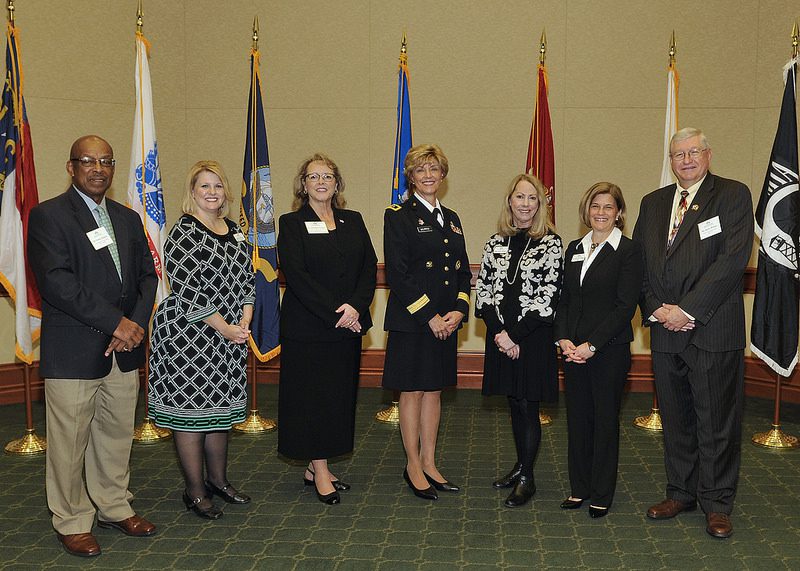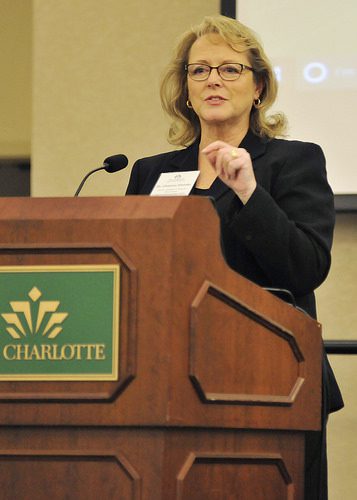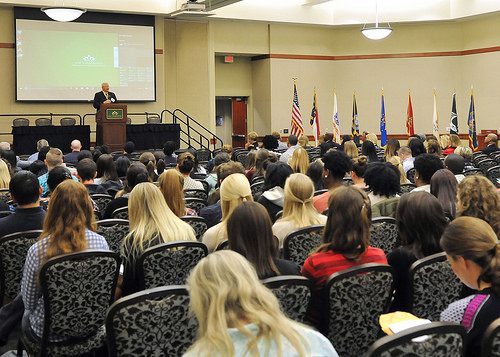2017 Conference
Returning veterans often face serious challenges as they reintegrate to civilian roles. This task can be even more demanding when the returning service member has suffered a traumatic injury. Supporting veterans and their families through this process was the focus of the 2017 UNC Charlotte Veterans Health Conference.
The conference emphasized biopsychosocial issues related to reintegration, including physical health challenges faced by this population access to and use of services among veterans, service members and their families, including potential strategies for supporting reintegration to their life roles in the community. The event will also address psychological trauma related to occupational health risk exposures in the military
“While asking ‘Have You Ever Served in the Military?’ is an important start, it must be accompanied by an in-depth understanding of what it means to have served and what the accompanying health risks are for that individual based on when and where they served,” said Major General Margaret Wilmoth, Deputy Surgeon General for Mobilization, Readiness and Army Reserve Affairs, US Army, and a keynote speaker at the event.
Other keynote speakers included:
- James Prosser, Assistant Secretary for North Carolina Veterans Affairs
- Professor Richard Tedeschi from the UNC Charlotte Department of Psychology, whose research focuses on post-traumatic growth in survivors of various traumas, including combat.
“In the aftermath of a traumatic experience some people may find posttraumatic growth, and this is true for veterans as well, said Tedeschi. “This growth may involve a greater sense of personal strength, appreciation of life, relating to others, new possibilities in life, or spiritual change. A combination of a program based on post-traumatic growth principles, in a setting that fosters reflection and within a safe interpersonal environment may have the best opportunity for promoting optimal reintegration for veterans.”
The conference featured a research poster session and opportunities for audience interaction and questions with all the presenters. Attendees had the opportunity to attend clinician and veteran panels of campus and community partners, and to visit a vendor fair featuring community service providers.
“North Carolina is home to more than 800,000 veterans and the third largest military force in the United States,” said Assistant Secretary Prosser. “Meeting the needs of service members, veterans and families requires interagency cooperation and collaboration.”
On the eve of the 2017 Conference, WFAE News spoke with Dr. Christine Elnitsky, Director of the Academy for Veteran and Miltary Health about her research, a veteran about his re-entry, and with North Carolina’s Department of Military and Veterans Affairs about the steps the state is taking to help with the transition.
Listen to the show at the link below:
WFAE News: Helping Veterans Overcome PTSD, Trauma In Their Post-Military Life


